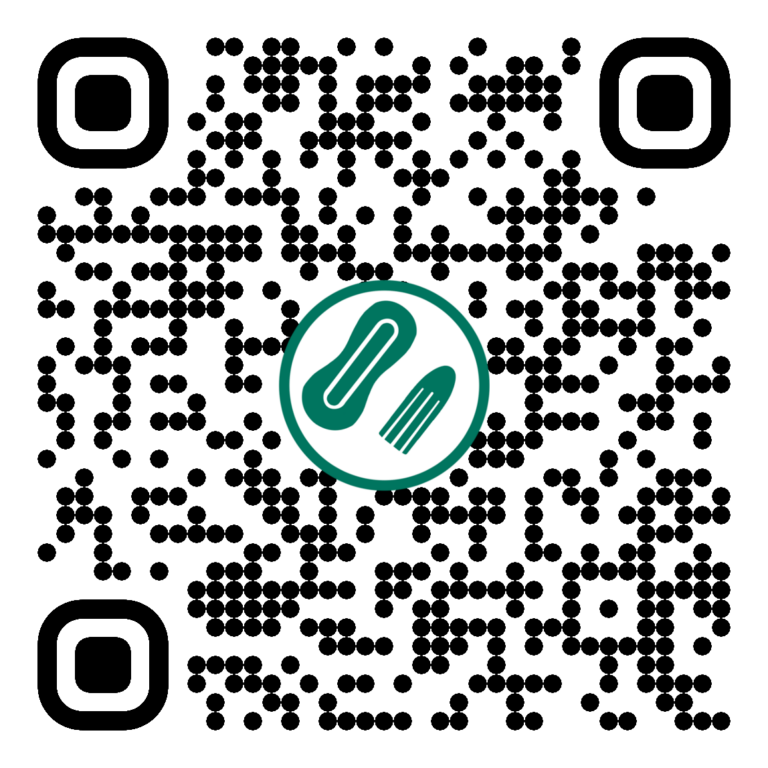Since February 2023, sanitary napkins and tampons have been available in most of the university’s buildings at freely accessible locations.

The project of free donors was initiated by the Autonomous Women* Unit at the end of 2021, and we are pleased that they are finally moving into the campus. In this project AStA, Studiwerk and the University come together to create a free offer for students and staff of the University of Trier. Free donors have been in the public discourse for years and many cities and universities in Germany have also presented them. With our donors, we are now following suit and hope to contribute to the fight against period poverty as well as to the elimination of the taboo of menstruation.
Why free menstrual supplies?
A very big argument for free menstrual and hygiene items in general is the so-called “period poverty” or period poverty. This means that people with a period are much more burdened financially – on average, up to €540 more per year. International as well as national studies prove this: In New Zealand, every twelfth girl misses school regularly due to lack of money for menstrual products. In the UK, as of 2017, one in 10 girls and women between the ages of 14 and 21 could not afford these products. A representative study also shows for Germany that for 23% of the participants expenses are a burden.
Reason enough to call for discharge and thus for equal opportunities!
Sources:
Periodic poverty in New Zealand: https://www.stern.de/politik/neuseeland–schulen-stellen-ab-juni-kostenlose-tampons-und-binden-bereit-30385080.html
Periodic poverty in Great Britain: https://www.plan.de/news/detail/period-poverty-ein-globales-problem.html
Sources:
Periodic poverty in New Zealand: https://www.stern.de/politik/neuseeland–schulen-stellen-ab-juni-kostenlose-tampons-und-binden-bereit-30385080.html
Periodic poverty in Great Britain: https://www.plan.de/news/detail/period-poverty-ein-globales-problem.html
The situation in Germany: https://www.plan.de/fileadmin/website/04._Aktuelles/Kampagnen_und_Aktionen/Menstruationsumfrage/Plan-3_Pager_Menstruation-A4-2022.pdf
What are the more sustainable alternatives?
Apart from the money, which inevitably has to be spent for the period, there is also a lot of rubbish, especially with sanitary napkins and tampons. On average, 5kg of garbage per year and menstruating person come together. Of course, it would be ideal not to produce any waste at all – but how?
Probably the most popular alternative is the menstrual cup: a silicone mold in the shape of a bowl that can be inserted into the vagina. There it then fills up with the blood, and when it is full, it can simply be pulled out again. The cups are of different sizes and available in different shapes. To find the perfect cup for yourself, you may have to try a little. By boiling the cup can be cleaned and will hopefully be usable for a few years.
Also known are fabric pads and period underwear. Both can be boiled after use and are therefore just as hygienic.
What man uses for himself, however, is of course left to all to himself. There may be different reasons for or against one product or another, and that is why it is nice to see that the variety on the market is increasing!
Sources:
Periodic waste: https://erdbeerwoche.com/meine-umwelt/muellproblem/
Information about the menstrual cup: https://www.oekotest.de/kosmetik-wellness/Nachhaltige-Monatshygiene-Wie-benutzt-man-eine-Menstruationstasse_11211_1.html
How are other cities handling the issue?
Free menstrual products are not a new topic. Since 2021, for example, New Zealand has been offering free menstrual supplies in all schools, as students were sometimes unable to attend classes due to lack of products. In the same year, France installed 1,500 vending machines at French universities in order to reduce the financial burden on students. In 2022, Scotland became the first country to legislate for free products to be offered in urban and educational institutions.
Germany is lagging behind compared to these countries, but there are advances here as well. Especially in schools, there are pilot projects or even donors already firmly associated with them, such as in Tübingen, Düsseldorf, Heidelberg or Karlsruhe. In Tübingen and Dresden, public buildings are also being discussed as locations for menstrual supplies. They are also available in many universities, such as Stuttgart, Hamburg, Regensburg, Passau, Bonn and Saarbrücken.
Sources:
Scotland, Tübingen: https://www.swr.de/swraktuell/baden-wuerttemberg/kostenlose-tampons-karlsruhe-heidelberg-tuebingen-100.html
Scotland: https://www.tagesschau.de/ausland/europa/tampons-schottland-kostenlos-gesetz-101.html
New Zealand: https://www.stern.de/politik/neuseeland–schulen-stellen-ab-juni-kostenlose-tampons-und-binden-bereit-30385080.html
France: https://taz.de/Periodenprodukte-an-Frankreichs-Unis/!5753810/
Düsseldorf: https://www1.wdr.de/nachrichten/menstruation-produkte-kostenlos-100.html
Heidelberg and Karlsruhe: https://www.news4teachers.de/2022/11/immer-mehr-schulen-in-deutschland-bieten-binden-und-tampons-kostenlos-an/
Dresden: https://www.mdr.de/nachrichten/sachsen/dresden/kostenlose-hygieneartikel-menstruation-100.html
University of Stuttgart: https://stuvus.uni-stuttgart.de/menstruationsprodukte/
University of Hamburg: https://www.uni-hamburg.de/gleichstellung/gleichstellung/tampon-binden-spender.html
Universities of Regensburg and Passau: https://www.merkur.de/bayern/regensburg/regensburg-passau-bayern-universitaet-kostenlos-binden-tampons-periodenarmut-zr-91033652.html
University of Bonn: https://www.uni-bonn.de/de/neues/086-2022
University of Saarland: https://www.uni-saarland.de/verwaltung/gleichstellung/beratung-service/menstruationsartikel-automaten.html